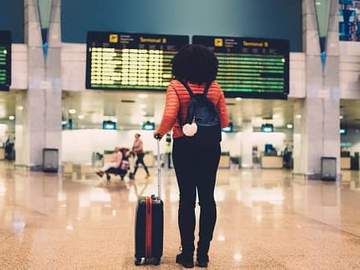What to KnowTraveled and traveling are more common in the US, and travelled and travelling are dominant everywhere else.
Spelling is typically clear-cut in modern English: forty unfailingly betrays four; the sweet treat after dinner is spelled dessert, not desert.
But some words have two forms that appear often enough in edited text to make it clear that something else is going on. And so it is with forms of the verb travel: traveled and travelled, and traveling and travelling.

It might have a different spelling wherever you're going.
One or Two L's?
If you look at where the single l forms originate and where the double l forms originate a pattern emerges: in the United States, traveled and traveling predominate, and everywhere else travelled and travelling are preferred.
The reason mostly comes down to one man we at Merriam-Webster hold especially dear: Noah Webster. Our lexicographical father (brothers George and Charles Merriam bought the rights to Noah Webster’s 1841 dictionary after Webster died) was a great believer in spelling reform and wanted English spelling to make more sense—and if the English of his homeland had more logic to it than its British parent, so much the better. He decided that travel needed only one l in its past and present participle forms.
Webster’s logic is the reason behind the spelling of canceled and cancelled as well: in the U.S., they have just one l, but elsewhere two l’s are the norm.
American English Words that Use 2 L's
Webster didn’t think all double l’s needed to be reduced to one, however: in cases in which the accent, or emphasis, is on the syllable with the l, two l’s are preserved: expelled and expelling; controlled and controlling; patrolled and patrolling.




